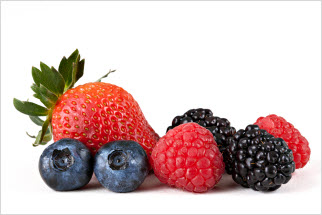Low Sperm Quality? Eat More Antioxidants!

Antioxidants may have an important role in reducing male infertility and sperm abnormalities according to recent studies. Oxidative stress in the semen is thought to be a major factor in the etiology of sperm dysfunction and DNA damage, and infertile males often have lower antioxidant capabilities than fertile males. Antioxidants fight against oxidative stress by eliminating free radicals –unstable metabolic byproducts that cause DNA damage and cellular impairment.
Semen Naturally Contains Antioxidants
Your semen naturally contains certain antioxidants, such as vitamins C and E, to help maintain low oxidative stress levels, however, circumstances such as lifestyle factors, disease, and infection can weaken your antioxidant response, thereby leading to low sperm count, low sperm motility, and abnormal sperm morphology (sperm quality). This is where ensuring the adequate intake of antioxidants might be beneficial.
Antioxidants Benefit Subfertile Males
In subfertile males (those that are less fertile than average, but not infertile), increasing antioxidant intake has been shown to provide a 4-fold increase in the odds of conceiving a child. It is estimated that up to 80% of cases of subfertility or delayed conception are due to the effects of oxidative stress on sperm. In these cases, in which other underlying causes of infertility have been ruled out, antioxidant therapy generally improves the results of most semen analysis parameters.
If your doctor suspects that your fertility issues might be due to inadequate antioxidant intake, the first line of treatment will likely be to reduce the conditions that are provoking the stress. Factors that can cause elevated free radicals include uncontrolled diabetes, tobacco and alcohol use, radiation exposure, pollutant and chemical exposure, psychological stress, infection, diet, obesity, and inactivity.
Foods High in Antioxidants
The ideal source to increase your intake of antioxidants is from fresh food. In particular, beans, berries, broccoli, garlic, legumes, nuts, red grapes, seeds, spinach, tomatoes, and whole grains are rich in antioxidants. While supplements are available, it is unclear which antioxidants are the most beneficial, and it is likely that a combination of antioxidants similar to that acquired through a well-balanced diet will be optimal. Excess antioxidants can also have adverse effects, so take care to follow the recommended dosages provided by your doctor if taking supplements.
Talk to your doctor today to find out if increasing your antioxidant intake might enhance your reproductive potential.






